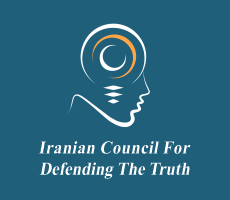Presently, Iran’s position for renewal of the JCPOA is that the U.S. must eliminate the sanctions which former president Trump imposed in 2018. President Biden publicly maintains that Iran must first end its enrichment efforts before direct discussions can begin. At present, then, the gap between both countries seems unbridgeable, but that is the real purpose of diplomacy—to build bridges. Diplomatic success, however, can be hindered by a large number of factors both internal to Iran and to the United States as well as by the actions of other countries.
Regarding the United States, it is very clear that President Biden wants to renew the deal. He was part of the administration which helped generate the arrangement and his current ‘team’ of diplomats includes many people who worked to produce the JCPOA as well as others with the same inclination. Biden also removed the Houthis from America’s terrorist organization listing. The fact that both houses of the Congress are in Democratic hands provides him with substantial legislative support and room to maneuver. Nonetheless, there is still strong domestic opposition unless the deal becomes much more restrictive and transparent, i.e., no side deals, much greater latitude for inspections, and no nuclear weapons.
In Iran President Rouhani also seeks to revive the JCPOA, but other elements both within the government as well as meaningful other organizations, such as the IRGC, are very distrustful of the U.S., as are segments of the general population. Internal politics may push Rouhani toward making a deal before the coming elections, but like Biden, he must portray the arrangement as very favorable to his country. Accordingly, there appears to be a genuine will on both sides, but can the parties actually find a way? Again, that is the purpose of negotiations, both public and private. Indeed, private discussions are very often the most fruitful.
Third parties also play an important role. The Europeans, who helped initiate the JCPOA, are very much on board and will support/urge Biden concessions to seal the deal. The Israelis, Persian Gulf Arab states, and others in the greater Middle East fear Iranian military power as well as proxy activities. They will, and are, lobbing strongly against a return to the previous agreement.
While third parties are not fully controllable, they can be influenced. Strong American security commitments to Israel and the Arab states may soften their opposition. Provocative actions by Hizbollah and the Houthis will stiffen both Arab opposition as well as the pro-Israel lobby in the U.S. Iranian influence over such organizations to moderate their military actions would definitely ease negotiations.
To summarize, there are many trade-offs, domestic and international. A deal before Iran’s elections, however, appears very unlikely. And if a new Iranian president is elected, new variables will enter into the equation. Clearly, only a prophet can accurately predict the end result of negotiations.

